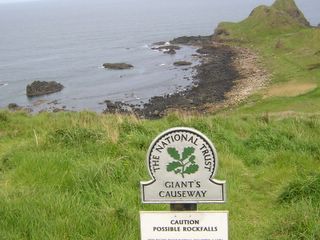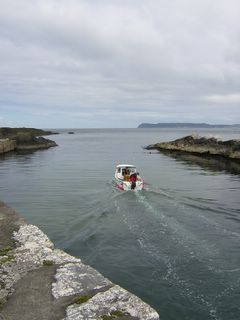Armed Intervention and the Genocide Convention
The last posting on Sir Brian Barder’s blog Ephems invites debate on Armed Intervention and the Genocide Convention.
The legal niceties often seem removed from the decisions, which in democracies, politicians have to take. I guess nobody could say those decisions are easy! How about this hypothetical?
Bardybrianstan, (Bstan) is a republic. It achieved independence from the Soviet Union in 1991. It is a member of the United Nations, a signatory to the Genocide Convention and to the Charter of Fundamental Rights.
Bstan has a population of 10 million twenty percent are Muslim. Ninety percent of the remainder are Russian, the rest Uzbeks and Kyrgyz. The Muslims live in a small enclave close to the Kyrgyzstan border. According to the CIA Year book, sixty percent of the male Muslim population is over 16. Its capital is Hatoff, is outside the Muslim enclave.
President Rackoff rules the country. He is a Russian. Since 1991 there have been no elections. The constitution provides that the president is elected every ten years by referendum. In 2001 he received support from 95% of the population. He appoints the parliament.
Bstan’ s constitution allows the Muslims to be appointed to that parliament, but since 1991 no Muslim has been appointed. According to the latest Human Rights Watch report, torture is regularly used; the Muslim population is deprived of even the basic human rights.
A Muslim group, alleged to be affiliated to Al Qaida, is organising a revolution to topple Rackoff.
Last year a joint venture between Exxon, Total and Bardyoil, the later wholly owned by the president’s brother Vladimir, discovered large quantities oil and natural gas in the Muslim enclave. President Rackoff has just signed an agreement with Total/Exxon to extract the hydrocarbons and construct a pipeline to join the Central Asia-Centre pipeline and take the oil/gas to the Caspian Sea. In addition, the United States has a large airbase nearing completion near B’stan’s capital, Hattof.
You are the Prime Minister of the United Kingdom.
A month ago, you were shown spy satellite photographs of large buildings in the course of construction in Bstan. The Joint Intelligence Committee advised you that the president intends to move the Muslims from their enclave into the camps. Indeed, our ambassador in Hattof has found out from his contacts that Rackoff intends to transfer all male Muslims over sixteen to these camps where they will be exterminated.
Last week, the Foreign Secretary brought to Cabinet a written legal advise from the FCO confirming that Rackoff’s action amount to genocide. At the following Cabinet, during a teleconference with the Attorney General in New York, he indicated that he disagreed with the FCO advice. He intends to give further advice when he returns from the United States in three weeks time.
Meanwhile, the UK Ambassador to the United Nations has spoken all members of the Security Council. The UK proposes to table a Resolution ordering, iter alia, Bstan to (1) halt the building if the camps, and (2) return to their homes all Muslims moved from their enclave. They have taken instructions from their governments. Both the United States and France have indicated that they would veto this resolution.
Things have moved on quickly. Today, you are told that Rackoff’ s camps are now complete and satellite images leave you in no doubt that the extermination can begin in the next couple of days. You meet the military chiefs. They tell you that providing you can confirm the action is not contrary to international law-the Army chief tells you he has no intention of following Milosevic to the International Court at the Hague- the camps can be destroyed by the air force. There would be minimal loss of life to our forces, but the 10,000 Bstan Muslims who are already in the camps would be killed.
What do you do?
Sir Brian, a former diplomat, gets the ball rolling with this a consolidation of his 3 comments: -------------------------------------------------------
Tony,
I hope your reference to the 'last posing' on my blog is a typo and not a comment....(Typo now corrected thanks!)
You set a very nice scenario in your test, and I hope others will also have a go at suggested solutions. Here is mine, or rather here are mine:
What would I do? Either of two things, both defensible and sensible:
Option 1: Nothing. Britain has no more responsibility for this potential disaster, or for doing anything about it, than any other individual country or government. As a permanent member of the Security Council, moreover, Britain has a special responsibility to honour its obligations under the Charter, which include not resorting to force in its international relations without the approval of the Security Council except in self-defence. And the clincher: killing 10,000 defenceless and unarmed civilians, or indeed anyone else, requires a much more compelling justification (in terms of irrefutable proof that many more will be killed if we don't) than seems to be available.
Option 2: Call an emergency meeting of the Security Council to decide on action to deal with the crisis, and embark on immediate consultations with the other members, including especially the other permanent members, to try to work out a resolution authorising the Secretary-General to take some form of action (not necessarily including the use of force) to defuse the situation in terms that will not attract a veto (abstentions by France and the US would be fine). Possible action might include one or several of the following, off the top of my head: a delegation of three Security Council members accompanied by the Secretary-General to hold emergency talks with the B'stan President; demand for an immediate visit to the camps by an observer mission led by the UN High Commissioner for Refugees, with a warning of serious consequences if the mission is not allowed in; UN authority for the air forces of three or more UN member states chosen by the Secretary-General to monitor the situation in the camps from the air in a no-fly zone, with authority to use force in self-defence or in order to prevent any major breach of the human rights of the camps' inhabitants; demand for the stationing of a UN police force (contributed by selected member states, including Muslim countries, in consultation with the Secretary-General) around the camps' perimeters with authority to use force in self-defence or to protect the camp inhabitants; setting up of a committee of the Security Council, including representatives of the B'stan government, to establish the facts and to make urgent recommendations to the Council; decision by the Security Council to call an emergency session of the General Assembly to deal with the situation and to make recommendations to the Council; appointment of a mediator or good offices negotiator to visit B'stand immediately for talks with all the parties involved in an effort to establish common ground and ways of removing the threat to the Muslims; and so forth. All these, including combinations of them, are almost infinitely capable of being modified in negotiation in order to avoid vetoes and to attract majority support in the Council. I would make sure that although the Council consultations would be private, the main proposals under discussion would become known to the media so as to raise the cost to the French and Americans of resisting them.
I would send my foreign secretary to Moscow, Washington and Hatoff for urgent talks. He or another minister would go to Egypt, Jordan, Kyrgistan and Saudi Arabia to muster Muslim support for Security Council action to protect the Muslims in B'stan. I would ask the EU Presidency to call an emergency meeting of EU heads of government to try to work out a united EU position on the action to be taken (which would put pressure on France to be flexible). I would call an emergency meeting of the NATO Council to authorise contingency planning in case the Security Council should ask for NATO participation in military action if all else failed. I would telephone the French and American Presidents and if necessary the remaining heads of government of Security Council member countries to seek their advice and cooperation in finding a way out of the crisis. I would make several menacing telephone calls to President Rakoff and encourage Putin and Bush to do the same.
Of course there could be no guarantee that any of this would succeed. But it would be infinitely preferable, in my opinion, to the kind of ill-conceived rush to unilateral military action, with all the unpredictable consequences that that would entail and the damage it would do to the international consensus on the rules governing the use of force in international affairs as embodied in the Charter. And it would stand a far better chance of saving lives than any amount of bombing.
Active diplomacy is generally much more effective, and does much less harm, than a precipitate rush to bombs, rockets and shells. It's a tragedy that we supported the Americans in abandoning diplomacy at Rambouillet well before diplomacy had had a chance to achieve international control of Kosovo and the removal of Serbian forces from it -- and eventually it was other countries' diplomacy that did achieve that, not the bombing. Exactly the same tragic mistake was made by the Americans and ourselves over Iraq, with the premature and unnecessary abandonment of the Blix inspection and active Security Council pressure on Saddam, in favour of slaughter, destruction, occupation, and terror.
Perhaps if the current generation of US and UK leaders had had some personal experience of the horrors of war, or if they had better functioning imaginations, they would be less enthusiastic about slaughtering people to prove their virility.
Right?
Pax vobiscum
Brian
Brian,
Couldn’t disagree with anything here, and of course all the active diplomacy would be undertaken, but I notice you’ve done a Barder shuffle to avoid the Genocide Convention.
This is what the UN said in its 2004 booklet: - A more secure world: Our shared responsibility
199. The Charter of the United Nations is not as clear as it could be when it comes to saving lives within countries in situations of mass atrocity. It “reaffirm(s)faith in fundamental human rights” but does not do much to protect them, and Article 2.7 prohibits intervention “in matters which are essentially within the jurisdiction of any State”. There has been, as a result, a long-standing argument in the international community between those who insist on a “right to intervene” in man-made catastrophe sand those who argue that the Security Council, for all its powers under Chapter VII to “maintain or restore international security”, is prohibited from authorizing any coercive action against sovereign States for whatever happens within their borders.
200. Under the Convention on the Prevention and Punishment of the Crime of Genocide (Genocide Convention), States have agreed that genocide, whether committed in time of peace or in time of war, is a crime under international law which they undertake to prevent and punish. Since then it has been understood that genocide anywhere is a threat to the security of all and should never be tolerated. The principle of non-intervention in internal affairs cannot be used to protect genocidal acts or other atrocities, such as large-scale violations of international humanitarian law or large-scale ethnic cleansing, which can properly be considered a threat to international security and as such provoke action by the Security Council.
I know we differ on this point, but it is surely arguable that the Genocide Convention should and must take, precedence over the doctrine of non-intervention enshrined in the Charter. After all, the signatories to the Convention in Article 1 UNDERTAKE TO PREVENT genocide and punish those involved in its perpetration. It’s plain language, which leaves no room for ambiguity. And if you look at the background to the Convention- its drafters had witnessed Europe’s worse genocide- that should not take us by surprise. After all, those who signed, and subsequently ratified, the Convention, must have been aware of the limits the Charter imposed on military intervention? I may at this point be faced with having to bypass the Security Council. But that would not allow me carte blanche.
The UN criteria would certainly come into play.
(a) Seriousness of threat. Is the threatened harm to State or human security of a kind, and sufficiently clear and serious, to justify prima facie the use of military force? In the case of internal threats, does it involve genocide and other large-scale killing, ethnic cleansing or serious violations of international humanitarian law, actual or imminently apprehended?
(b) Proper purpose. Is it clear that the primary purpose of the proposed military action is to halt or avert the threat in question, whatever other purposes or motives may be involved?
(c) Last resort. Has every non-military option for meeting the threat in question been explored, with reasonable grounds for believing that other measures will not succeed?
(d) Proportional means. Are the scale, duration and intensity of the proposed military action the minimum necessary to meet the threat in question?
(e) Balance of consequences. Is there a reasonable chance of the military action being successful in meeting the threat in question, with the consequences of action not likely to be worse than the consequences of inaction?
The question then is whether what may be about to befall the Muslim population of B’stan. Rackoff is about to get underway with ethnic cleansing. This is a clear a breach of the Convention. Yes?
The FCO lawyers have confirmed this is their view,but the Attorney disagrees. I’ve learned the lesson of Iraq and have no intention of being hoisted on this one again. So the Attorney has now just arrived from Washington; he is outside the Cabinet room with a written advice!
Anyway, the situation has now moved on. Before the Attorney arrived, I’ve just spoken to the head of the JIC. He told me that Rackoff has managed to buy some fissile material from neighbouring Confusistan. You will no doubt recall that the former Soviet Union kept a large stockpile of its nuclear, biological and chemical weapons together short-range missiles (range 1000-3000kms) in Confusistan. They could reach Virgin-Lotus, a small island in the Indian Ocean, owned by Sir Richard Branson, and used by his super-rich clients! It is presently hosting an international media conference. The keynote speech is to be made by former President Clinton.
With good reason, Confusistan is known as the North Korea of Central Asia. Almost nothing is known of the state, except President Otorbayev rules it. Unlike any of its neighbours it has no oil, natural gas or coal, and has there obtained from North Korea, virtually its only trading partner, a heavy water nuclear reactor. It is suspected that Confusistan has a secret programme to enrich uranium well beyond the level required for its nuclear reactors. It is not a signatory to the Non-Proliferation Treaty.
B’Stan has now threatened to use their missiles with chemical warheads in self-defence. They consider that any threatened use of the Genocide convention to be an act of aggression. The UK ambassador has now been asked to leave Hattof. The JIC has also found out from a “new and trustworthy source” that Rackoff could have his missiles ready for action within 30 minutes. The Security Council has met, and despite much arm-twisting, the French and US position has not changed. Confusistan has not allowed my Foreign Secretary’s plane to over fly its territory. It would take three days for him to reach Hattof from Kyrgyzstan.
Your move!







 For anyone hooked on that game may find these shelves tickety-boo!
Cherrs
t
For anyone hooked on that game may find these shelves tickety-boo!
Cherrs
t

 For those who missed George Galloway's collision with a rather inept US Senate sub-committee, can find a
For those who missed George Galloway's collision with a rather inept US Senate sub-committee, can find a






 Dale Watson also provided the entertainment at John and Teresa's wedding. Typically Austin, it took place on a paddle boat on the Town Lake.
Congratulations to you both!
Dale Watson also provided the entertainment at John and Teresa's wedding. Typically Austin, it took place on a paddle boat on the Town Lake.
Congratulations to you both!